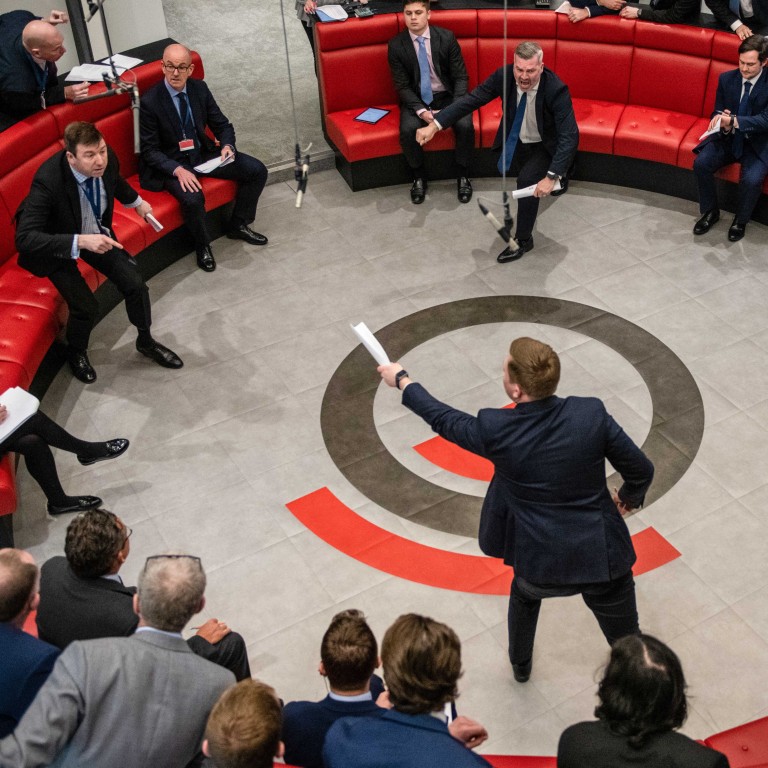
LME faced ‘death spiral’ with as many as a dozen firms at risk of default amid nickel chaos: lawyer
- Collapse of firms due to US$19.7 billion in margin calls in March 2022 would have depleted bourse’s default fund, LME lawyer said on final day of trial
- Bourse would have been forced to seek additional funds from members, spurring further defaults, lawyer said
The 146-year-old bourse initially believed five of its more than 40 members were at risk of default as nickel prices spiked on March 8, 2022, said Jonathan Crow, a lawyer for the LME.
The LME now believes as many as seven were facing default, which would have depleted the capital set aside for its clearing arm to close out positions of defaulted members, Crow said.
LME had options to avoid cancelling trades during nickel crisis, funds say
That would have required the bourse to seek an additional US$220 million from non-defaulting members for the fund, which would have pushed an additional five members into default and led to a dozen defaults in total, he said.
“These were not unfounded concerns,” Crow said in the trial’s third and final day. “They were, in fact, understated [at the time].”
The LME had never experienced multiple firms defaulting at the same time in its history, he said.
The rapid price movement squeezed dozens of short-sellers, including the world’s largest stainless steel producer, Tsingshan Holding Group of China.
Elliott and Jane Street have argued that the LME made a hasty decision to cancel trades as the bourse’s CEO Matthew Chamberlain determined the nickel market was “disorderly” in the early morning hours of March 8, 2022.

The LME has said it feared member firms could collapse and the nickel market could be destabilised as the rapid price rise meant firms faced a collective US$19.7 billion in margin calls.
The decision to cancel trades on March 8, 2022, has sparked several legal actions and an enforcement inquiry by its chief regulator in Britain.
The default of the LME’s member firms would have created a “ripple effect” beyond the nickel market, as all positions in any metal would have to be closed out for each defaulting member, Crow said.
Can HKEX-owned LME rebuild its reputation a year after nickel chaos?
At the same time, he disputed claims by an expert witness for the firms suing the bourse that the LME could have sought to “port” the short positions of defaulting members to other traders.
“No prudent trader would have taken on the short positions of a defaulting member in the midst of a short squeeze in such a disrupted market,” Crow said.
Two judges are presiding over the cases, which are being heard together, and could reach a verdict in the coming weeks or months. If they find in favour of Elliott and Jane Street, the case will move to a second damages phase at a later date.
The closely watched case also could weigh heavily on the ability of regulated exchanges to take action to address disorder in their markets in the future.
The LME has argued that is it required to have the ability to cancel trades in “extraordinary” circumstances under global securities standards, known as the Markets in Financial Instruments Directive.

